
The GW Institute for Korean Studies and the East Asia National Resource Center Present:
Korea Policy Forum
Post-Pandemic U.S.-South Korea Economic Cooperation
Monday, June 29, 2020 | 10:00 a.m. – 11:00 a.m. EDT
Livestream via WebEx
Registered guests will receive the following confirmation email with details for joining the WebEx event.
This event is on the record and open to the public.
Event Description
The COVID-19 pandemic imposed unprecedented economic challenges to both the U.S. and South Korea. However, Seoul and Washington have put into place a framework for fruitful economic partnerships that are delivering measurable, concrete benefits for Americans and Koreans alike. The two allies have fought common foes in the past; the same determination and cooperation is required to defeat COVID-19. South Korea’s institutional capacity to handle the current pandemic shows exactly why it is important for Washington to enhance its already strong partnership with Seoul. The United States and South Korea have much to offer to each other, and much to gain from their ever-evolving practical partnership on many key economic policy fronts.
Please join GW Institute for Korean Studies for a timely online discussion on strategic methods in which Washington and Seoul can broaden cooperation even further and invigorate the practical partnership between the two proven allies in pursuit of economic rebound in this time of uncertainty.
Speaker

Terry Miller ,Director of Center for International Trade and Economics and Mark A. Kolokotrones Fellow in Economic Freedom, The Heritage Foundation
Terry Miller champions free markets as director of two of The Heritage Foundation’s key research centers, Data Analysis and Trade and Economics, and as the think tank’s Mark A. Kolokotrones fellow in economic freedom. At the Center for Trade and Economics, Miller focuses on research into how free markets and international trade foster economic growth around the world. He is editor of a signature Heritage publication, the annual Index of Economic Freedom. At the Center for Data Analysis, Miller oversees the statistical and econometric modeling that underpins the think tank’s wide-ranging research programs. Both centers are part of Heritage’s Institute for Economic Freedom and Opportunity. Before joining Heritage in 2007 as director of the Center for Trade and Economics, Miller had a distinguished career in the U.S. Foreign Service. In 2006, he was appointed as an ambassador to the United Nations and U.S. representative on the U.N.’s Economic and Social Council. Miller previously served at the State Department as deputy assistant secretary for economic and global issues. He headed offices at State devoted to the promotion of human rights, social issues, development and trade. Overseas, Miller served in Italy, France, Barbados and New Zealand. He headed the U.S. observer mission to the U.N. Educational, Scientific and Cultural Organization (UNESCO). Miller did both his undergraduate studies in government and his graduate studies in economics at the University of Texas in Austin. He and his wife, the former opera singer Deborah Miller, have three children.
Discussant
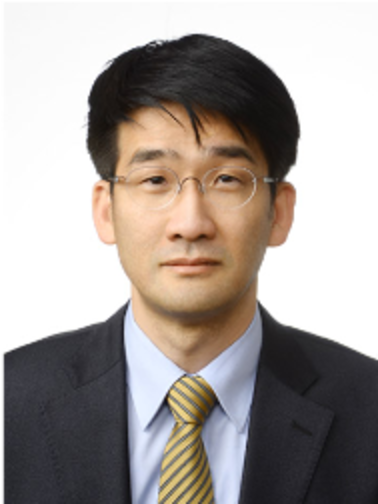
Wonhyuk Lim, Professor, KDI School of Public Policy and Management
Wonhyuk Lim is a professor at the KDI School of Public Policy and Management. He is a visiting professor at Johns Hopkins SAIS in 2020. Since he joined KDI in 1996, his research has focused on state-owned enterprises and family-based business groups (chaebol). He has also written extensively on development issues, in conjunction with policy consultation projects under Korea’s Knowledge Sharing Program (KSP). After the 2002 Presidential Election in Korea, he worked for the Presidential Transition Committee and the Presidential Committee on Northeast Asia and helped to set policy directions for the restructuring of the electricity and gas sector and for Northeast Asian energy cooperation. Dr. Lim was at the Brookings Institution as a CNAPS Fellow in 2005-06. After returning to KDI in 2007, he became Director of the Office of Economic Development Cooperation, precursor to the Center for International Development (CID). He received a Presidential order from the Dominican Republic for his KSP consultation work. In 2010, Dr. Lim helped to formulate the G20 Seoul Development Consensus for Shared Growth. In 2013, he became Vice President and Director of Department of Competition Policy at KDI. In 2014-15, he served as the inaugural Executive Director of the Center for Regulatory Studies. Most recently, he served as Associate Dean, Office of Development Research and International Cooperation, at KDI School. His recent publications include Opinion Polarization in Korea: Its Characteristics and Drivers (KDI, 2019, co-authored), Understanding the Drivers of Trust in Government Institutions in Korea (OECD, 2018, co-edited), Improving Regulatory Governance (OECD, 2017, co-authored), The Korean Economy: From a Miraculous Past to a Sustainable Future (Harvard, 2015, co-authored), and Global Leadership in Transition: Making the G20 More Effective and Responsive (Brookings and KDI, 2011, co-edited). He received a B.A.S. in Physics and History and a Ph.D. in Economics from Stanford University.
Moderator
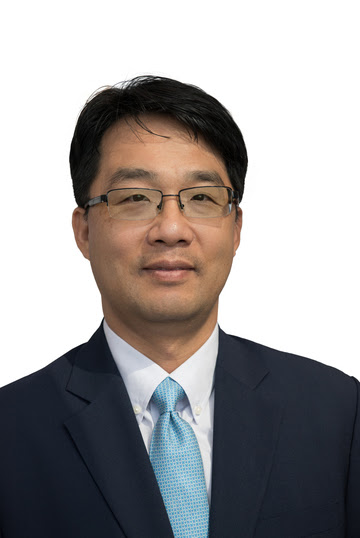
Yonho Kim
Associate Director, GW Institute for Korean Studies
Yonho Kim is Associate Research Professor of Practice and Associate Director of GW Institute for Korean Studies. He specializes in North Korea’s mobile telecommunications and U.S. policy towards North Korea. Kim is the author of North Korea’s Mobile Telecommunications and Private Transportation Services in the Kim Jong-un Era (2019) and Cell Phones in North Korea: Has North Korea Entered the Telecommunications Revolution? (2014). His research findings were covered by various media outlets, including Wall Street Journal, The Atlantic, Yonhap News, and Libération. Prior to joining GWIKS, he extensively interacted with the Washington policy circle on the Korean peninsula as Senior Researcher of the U.S.-Korea Institute at Johns Hopkins University School of Advanced International Studies, Senior Reporter for Voice of America’s Korean Service, and Assistant Director of the Atlantic Council’s Program on Korea in Transition. He holds a B.A. and M.A. in International Relations from Seoul National University, and an M.A. in International Relations and International Economics from Johns Hopkins University School of Advanced International Studies.
The Korea Policy Forum is made possible by a generous grant provided by the KDI School of Public Policy and Management.












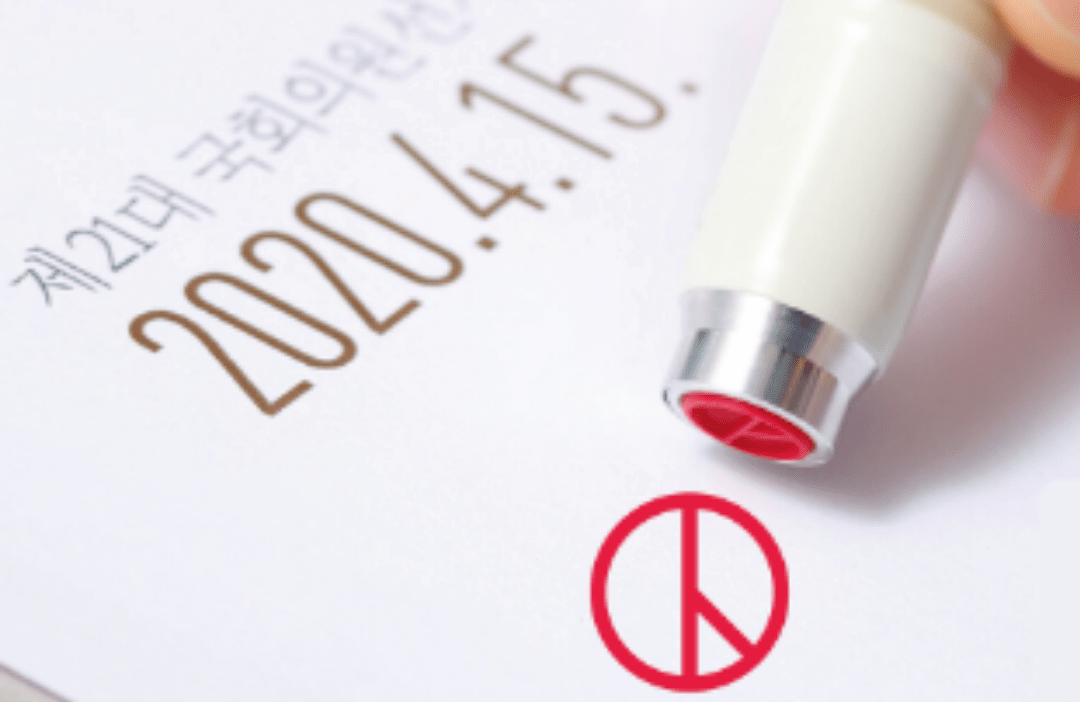

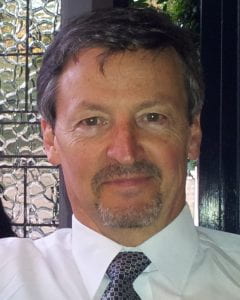 Stephen Costello has been immersed in South Korean politics and foreign policy since 1990. He is the Director of the policy NGO AsiaEast.Org and columnist with The Korea Times in Seoul. He holds a bachelor’s degree in Public Policy Analysis from Syracuse University. Mr. Costello was formerly director of the Korea Program at the Atlantic Council of the US and director of the Kim Dae Jung Peace Foundation/USA. He was a political consultant and policy advisor to overseas political parties and mayors, and Washington manager for overseas NGOs. He has consulted for small technology businesses in Korea and the US. He has advised ministers and staff at the Foreign and Unification ministries in Seoul and the State Department in Washington. Beyond South Korea, Costello’s focus includes the Korean Peninsula, Northeast Asia, and the US interests in the region.
Stephen Costello has been immersed in South Korean politics and foreign policy since 1990. He is the Director of the policy NGO AsiaEast.Org and columnist with The Korea Times in Seoul. He holds a bachelor’s degree in Public Policy Analysis from Syracuse University. Mr. Costello was formerly director of the Korea Program at the Atlantic Council of the US and director of the Kim Dae Jung Peace Foundation/USA. He was a political consultant and policy advisor to overseas political parties and mayors, and Washington manager for overseas NGOs. He has consulted for small technology businesses in Korea and the US. He has advised ministers and staff at the Foreign and Unification ministries in Seoul and the State Department in Washington. Beyond South Korea, Costello’s focus includes the Korean Peninsula, Northeast Asia, and the US interests in the region.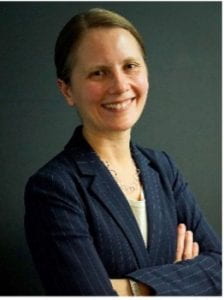 Celeste Arrington is Korea Foundation Assistant Professor of Political Science and International Affairs at GW. She specializes in comparative politics, with a regional focus on the Koreas and Japan. Her research and teaching focus on law and social movements, the media, lawyers, policy processes, historical justice, North Korean human rights, and qualitative methods. She is also interested in the international relations and security of Northeast Asia and transnational activism. She is the author of Accidental Activists: Victims and Government Accountability in South Korea and Japan (2016) and has published in Comparative Political Studies, Law & Society Review, Journal of East Asian Studies, Pacific Affairs, Asian Survey, and the Washington Post, among others. She received a Ph.D. from the University of California, Berkeley, an MPhil from the University of Cambridge, and an A.B. from Princeton University. She is currently writing a book that analyzes the role of lawyers and legal activism in Japanese and Korean policies related to persons with disabilities and tobacco control.
Celeste Arrington is Korea Foundation Assistant Professor of Political Science and International Affairs at GW. She specializes in comparative politics, with a regional focus on the Koreas and Japan. Her research and teaching focus on law and social movements, the media, lawyers, policy processes, historical justice, North Korean human rights, and qualitative methods. She is also interested in the international relations and security of Northeast Asia and transnational activism. She is the author of Accidental Activists: Victims and Government Accountability in South Korea and Japan (2016) and has published in Comparative Political Studies, Law & Society Review, Journal of East Asian Studies, Pacific Affairs, Asian Survey, and the Washington Post, among others. She received a Ph.D. from the University of California, Berkeley, an MPhil from the University of Cambridge, and an A.B. from Princeton University. She is currently writing a book that analyzes the role of lawyers and legal activism in Japanese and Korean policies related to persons with disabilities and tobacco control.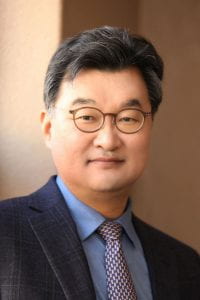 Heung-Kyu Kim is the founder and Director of China Policy Institute and professor in the department of political science at Ajou University, South Korea. He also served as a professor at the Institute of Foreign Affairs and National Security, South Korea’s Ministry of Foreign Affairs. His current assignments include Policy Advisory Board Member for the Ministry of National Defense and the ROK Army and a member of the Foreign Ministry’s Reform Commission. He also served as Director of Foreign Affairs Subcommittee on the Presidential Commission on Policy Planning, Team Leader of Security and Defense in the Presidential Task Force of Future Vision 2045, a board member of the National Security Council and a board member of National Defense Reform Commission. Dr. Kim’s publications include China and the U.S.-ROK Alliance: Promoting a Trilateral Dialogue (CFR, 2017), Enemy, Homager or Equal Partner?: Evolving Korea-China Relations (2012), From a Buffer Zone to a Strategic Burden: Evolving Sino-North Korea Relations during Hu Jintao Era (2010). His book China’s Central-Local Relations and Decision-Making received an award for Excellency of the Year by the Ministry of Culture in 2008. He also received the NEAR Foundation Academic prize of the year in the area of foreign policy and security in 2014. Kim received his BA and MA in international relations from Seoul National University, South Korea, and Ph.D. in Political Science from the University of Michigan.
Heung-Kyu Kim is the founder and Director of China Policy Institute and professor in the department of political science at Ajou University, South Korea. He also served as a professor at the Institute of Foreign Affairs and National Security, South Korea’s Ministry of Foreign Affairs. His current assignments include Policy Advisory Board Member for the Ministry of National Defense and the ROK Army and a member of the Foreign Ministry’s Reform Commission. He also served as Director of Foreign Affairs Subcommittee on the Presidential Commission on Policy Planning, Team Leader of Security and Defense in the Presidential Task Force of Future Vision 2045, a board member of the National Security Council and a board member of National Defense Reform Commission. Dr. Kim’s publications include China and the U.S.-ROK Alliance: Promoting a Trilateral Dialogue (CFR, 2017), Enemy, Homager or Equal Partner?: Evolving Korea-China Relations (2012), From a Buffer Zone to a Strategic Burden: Evolving Sino-North Korea Relations during Hu Jintao Era (2010). His book China’s Central-Local Relations and Decision-Making received an award for Excellency of the Year by the Ministry of Culture in 2008. He also received the NEAR Foundation Academic prize of the year in the area of foreign policy and security in 2014. Kim received his BA and MA in international relations from Seoul National University, South Korea, and Ph.D. in Political Science from the University of Michigan. Yonho Kim is Associate Research Professor of Practice and Associate Director of GW Institute for Korean Studies. He specializes in North Korea’s mobile telecommunications and U.S. policy towards North Korea. Kim is the author of North Korea’s Mobile Telecommunications and Private Transportation Services in the Kim Jong-un Era (2019) and Cell Phones in North Korea: Has North Korea Entered the Telecommunications Revolution? (2014). His research findings were covered by various media outlets, including Wall Street Journal, The Atlantic, Yonhap News, and Libération. Prior to joining GWIKS, he extensively interacted with the Washington policy circle on the Korean peninsula as Senior Researcher of the U.S.-Korea Institute at Johns Hopkins University School of Advanced International Studies, Senior Reporter for Voice of America’s Korean Service, and Assistant Director of the Atlantic Council’s Program on Korea in Transition. He holds a B.A. and M.A. in International Relations from Seoul National University, and an M.A. in International Relations and International Economics from Johns Hopkins University School of Advanced International Studies.
Yonho Kim is Associate Research Professor of Practice and Associate Director of GW Institute for Korean Studies. He specializes in North Korea’s mobile telecommunications and U.S. policy towards North Korea. Kim is the author of North Korea’s Mobile Telecommunications and Private Transportation Services in the Kim Jong-un Era (2019) and Cell Phones in North Korea: Has North Korea Entered the Telecommunications Revolution? (2014). His research findings were covered by various media outlets, including Wall Street Journal, The Atlantic, Yonhap News, and Libération. Prior to joining GWIKS, he extensively interacted with the Washington policy circle on the Korean peninsula as Senior Researcher of the U.S.-Korea Institute at Johns Hopkins University School of Advanced International Studies, Senior Reporter for Voice of America’s Korean Service, and Assistant Director of the Atlantic Council’s Program on Korea in Transition. He holds a B.A. and M.A. in International Relations from Seoul National University, and an M.A. in International Relations and International Economics from Johns Hopkins University School of Advanced International Studies.
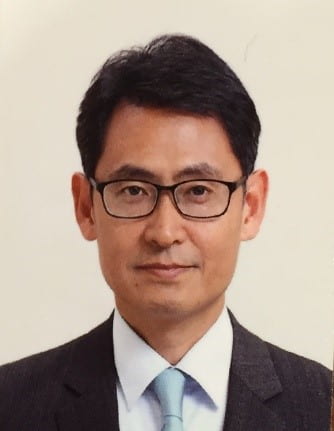 Chang Huh has been serving as the Deputy Minister for International Affairs of the Ministry of Economy and Finance since February 2020. He has worked in various capacities both at home and abroad, including serving as the Director General for the Development Finance Bureau from 2018 to 2020 and as the Senior Director for the International Economic Policy Division from 2012 to 2013. Dr. Huh has also worked at the OECD as the Minister of the Permanent Delegation of the Republic of Korea (2015-2018) and at the Asian Development Bank (ADB) as an advisor to the Executive Director of the Korean Office (2004-2005). He majored in International Economics at Seoul National University and received a Ph.D. in Economics from I.E.P. de Paris in July 2003.
Chang Huh has been serving as the Deputy Minister for International Affairs of the Ministry of Economy and Finance since February 2020. He has worked in various capacities both at home and abroad, including serving as the Director General for the Development Finance Bureau from 2018 to 2020 and as the Senior Director for the International Economic Policy Division from 2012 to 2013. Dr. Huh has also worked at the OECD as the Minister of the Permanent Delegation of the Republic of Korea (2015-2018) and at the Asian Development Bank (ADB) as an advisor to the Executive Director of the Korean Office (2004-2005). He majored in International Economics at Seoul National University and received a Ph.D. in Economics from I.E.P. de Paris in July 2003. Hee-Kwon Jung has been serving as the Director-General for the International Cooperation Bureau of the Ministry of Science and ICT since November 2019. He also served as the President of the Seoul Office of Central Radio Management Service of the Ministry of Science and ICT from 2018 to 2019. From 2014 to 2016, he worked as the Director of the Public-Private Joint Task Force for the Creative Economy on the Presidential Advisory Council for Science and Technology and held positions in the S&T Innovation Division, S&T Strategy Division, and S&T Policy Division of the Ministry of Science, ICT and Future Planning. From 2009 to 2011, he was seconded to the OECD. In 2007, he worked as the Director of the Technology Innovation System Division of the Ministry of Science and Technology. He graduated from Seoul National University, majoring in International Economics, and acquired an M.A in Public Administration from the University of Missouri.
Hee-Kwon Jung has been serving as the Director-General for the International Cooperation Bureau of the Ministry of Science and ICT since November 2019. He also served as the President of the Seoul Office of Central Radio Management Service of the Ministry of Science and ICT from 2018 to 2019. From 2014 to 2016, he worked as the Director of the Public-Private Joint Task Force for the Creative Economy on the Presidential Advisory Council for Science and Technology and held positions in the S&T Innovation Division, S&T Strategy Division, and S&T Policy Division of the Ministry of Science, ICT and Future Planning. From 2009 to 2011, he was seconded to the OECD. In 2007, he worked as the Director of the Technology Innovation System Division of the Ministry of Science and Technology. He graduated from Seoul National University, majoring in International Economics, and acquired an M.A in Public Administration from the University of Missouri.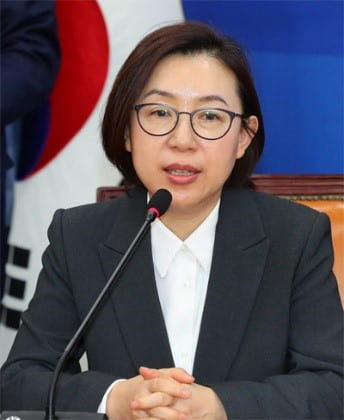 Moran Ki is a professor in the Department of Cancer Control and Population Health at the National Cancer Center Graduate School of Cancer Science and Policy (NCC-GCSP). Her expertise lies in infectious disease epidemiology and global health. She worked as a professor in the Department of Preventive Medicine at Eulji University from 1998 to 2013 and served as the Dean of Eulji University’s Graduate School of Public Health from 2005 to 2008 and again from 2011 to 2013. She received her Ph.D. from Hanyang University’s College of Medicine. She also received an M.P.H. in Public Health from Seoul National University and an M.D. in medicine from Hanyang University.
Moran Ki is a professor in the Department of Cancer Control and Population Health at the National Cancer Center Graduate School of Cancer Science and Policy (NCC-GCSP). Her expertise lies in infectious disease epidemiology and global health. She worked as a professor in the Department of Preventive Medicine at Eulji University from 1998 to 2013 and served as the Dean of Eulji University’s Graduate School of Public Health from 2005 to 2008 and again from 2011 to 2013. She received her Ph.D. from Hanyang University’s College of Medicine. She also received an M.P.H. in Public Health from Seoul National University and an M.D. in medicine from Hanyang University.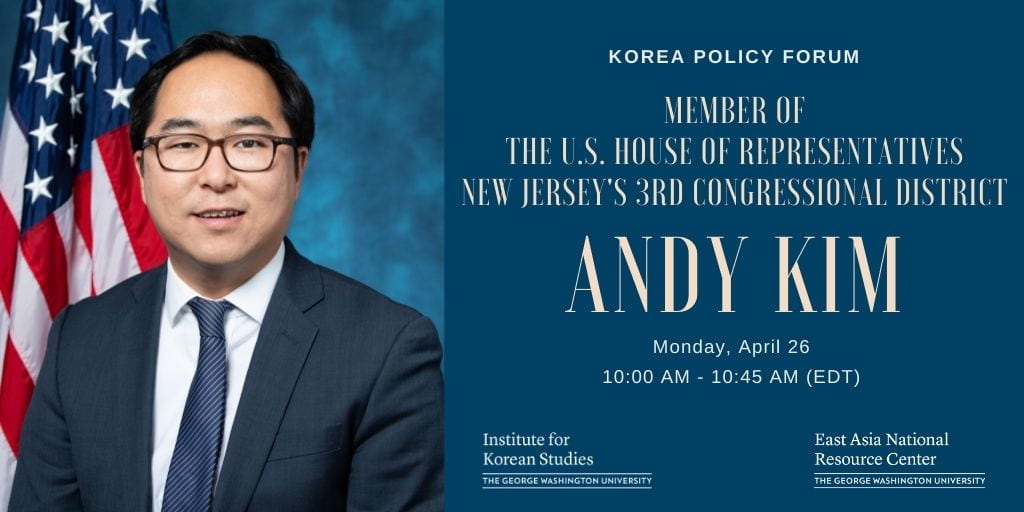
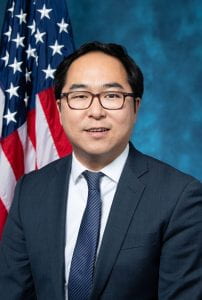



 David E. Sanger is a national security correspondent and a senior writer. In a 36-year reporting career for The New York Times, he has been on three teams that have won Pulitzer Prizes, most recently in 2017 for international reporting. His newest book, The Perfect Weapon: War, Sabotage and Fear in the Cyber Age, examines the emergence of cyber-conflict as the primary way large and small states are competing and undercutting each other, changing the nature of global power.
David E. Sanger is a national security correspondent and a senior writer. In a 36-year reporting career for The New York Times, he has been on three teams that have won Pulitzer Prizes, most recently in 2017 for international reporting. His newest book, The Perfect Weapon: War, Sabotage and Fear in the Cyber Age, examines the emergence of cyber-conflict as the primary way large and small states are competing and undercutting each other, changing the nature of global power. 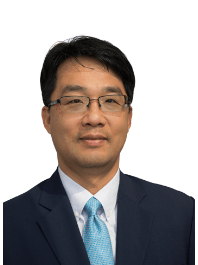


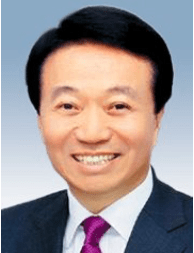

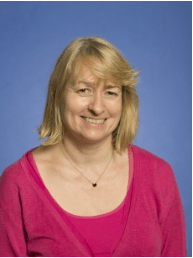
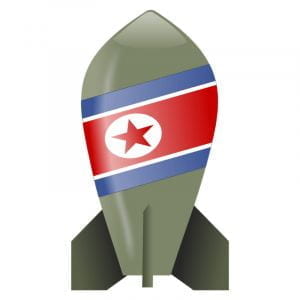


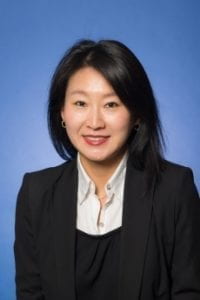
 Yonho Kim is Associate Research Professor of Practice and Associate Director of GW Institute for Korean Studies. He specializes in North Korea’s mobile telecommunications and U.S. policy towards North Korea. Kim is the author of North Korea’s Mobile Telecommunications and Private Transportation Services in the Kim Jong-un Era (2019) and Cell Phones in North Korea: Has North Korea Entered the Telecommunications Revolution? (2014). His research findings were covered by various media outlets, including Wall Street Journal, The Atlantic, Yonhap News, and Libération. Prior to joining GWIKS, he extensively interacted with the Washington policy circle on the Korean peninsula as Senior Researcher of the U.S.-Korea Institute at Johns Hopkins University School of Advanced International Studies, Senior Reporter for Voice of America’s Korean Service, and Assistant Director of the Atlantic Council’s Program on Korea in Transition. He holds a B.A. and M.A. in International Relations from Seoul National University, and an M.A. in International Relations and International Economics from Johns Hopkins University School of Advanced International Studies.
Yonho Kim is Associate Research Professor of Practice and Associate Director of GW Institute for Korean Studies. He specializes in North Korea’s mobile telecommunications and U.S. policy towards North Korea. Kim is the author of North Korea’s Mobile Telecommunications and Private Transportation Services in the Kim Jong-un Era (2019) and Cell Phones in North Korea: Has North Korea Entered the Telecommunications Revolution? (2014). His research findings were covered by various media outlets, including Wall Street Journal, The Atlantic, Yonhap News, and Libération. Prior to joining GWIKS, he extensively interacted with the Washington policy circle on the Korean peninsula as Senior Researcher of the U.S.-Korea Institute at Johns Hopkins University School of Advanced International Studies, Senior Reporter for Voice of America’s Korean Service, and Assistant Director of the Atlantic Council’s Program on Korea in Transition. He holds a B.A. and M.A. in International Relations from Seoul National University, and an M.A. in International Relations and International Economics from Johns Hopkins University School of Advanced International Studies.
 Heung-Kyu Kim is the founder and Director of China Policy Institute and professor in the department of political science at Ajou University, South Korea. He also served as a professor at the Institute of Foreign Affairs and National Security, South Korea’s Ministry of Foreign Affairs. His current assignments include Director of Foreign Affairs Subcommittee on the Presidential Commission on Policy-Planning, Team Leader of Security and Defense in the Presidential Task Force of Future Vision 2045, a board member of the National Security Council and a board member of National Defense Reform Commission, Ministry of National Defense. Kim has written more than 300 articles, books, and policy papers regarding Chinese politics and foreign policy, and security issues in Northeast Asia. They include China and the U.S.-ROK Alliance: Promoting a Trilateral Dialogue (CFR, 2017), Enemy, Homager or Equal Partner?: Evolving Korea-China Relations (2012), From a Buffer Zone to a Strategic Burden: Evolving Sino-North Korea Relations during Hu Jintao Era (2010). His book China’s Central-Local Relations and Decision-Making received an award for Excellency of the Year by the Ministry of Culture in 2008. He also received the NEAR Foundation Academic prize of the year in the area of foreign policy and security in 2014. Kim received his BA and MA in international relations from Seoul National University, South Korea, and Ph.D. in Political Science from the University of Michigan.
Heung-Kyu Kim is the founder and Director of China Policy Institute and professor in the department of political science at Ajou University, South Korea. He also served as a professor at the Institute of Foreign Affairs and National Security, South Korea’s Ministry of Foreign Affairs. His current assignments include Director of Foreign Affairs Subcommittee on the Presidential Commission on Policy-Planning, Team Leader of Security and Defense in the Presidential Task Force of Future Vision 2045, a board member of the National Security Council and a board member of National Defense Reform Commission, Ministry of National Defense. Kim has written more than 300 articles, books, and policy papers regarding Chinese politics and foreign policy, and security issues in Northeast Asia. They include China and the U.S.-ROK Alliance: Promoting a Trilateral Dialogue (CFR, 2017), Enemy, Homager or Equal Partner?: Evolving Korea-China Relations (2012), From a Buffer Zone to a Strategic Burden: Evolving Sino-North Korea Relations during Hu Jintao Era (2010). His book China’s Central-Local Relations and Decision-Making received an award for Excellency of the Year by the Ministry of Culture in 2008. He also received the NEAR Foundation Academic prize of the year in the area of foreign policy and security in 2014. Kim received his BA and MA in international relations from Seoul National University, South Korea, and Ph.D. in Political Science from the University of Michigan.

